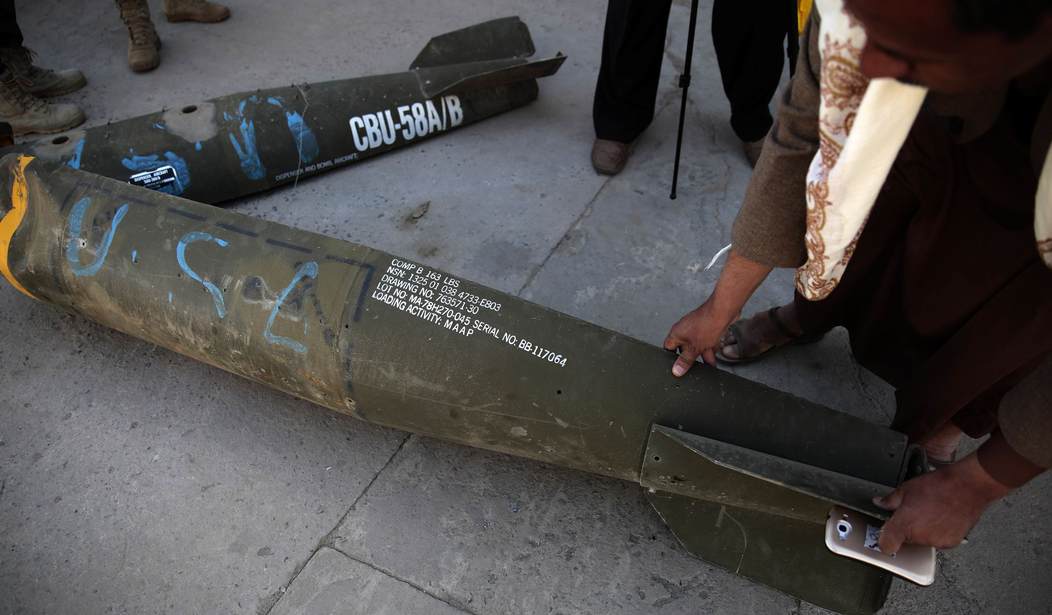The White House announced July 7th that they are sending cluster munitions to Ukraine, a choice Biden described as, "not an easy decision" in an interview with CNN.
The weaponry was selected for inclusion in the newest aid package to Ukraine because the U.S. has a sizable stockpile of such cluster munitions and is getting low on the 155 mm artillery and ammunition that makes up a large chunk of the $75 billion in total assistance given to Ukraine. Biden hopes the cluster bombs will be a stop-gap measure until the U.S. can build their reserve back up.
Cluster munitions, which are banned in over 120 countries in an agreement called the Convention on Cluster Munitions, are especially dangerous to civilians because of their lasting effect. The bomb is dropped and explodes in the air, releasing a cluster of smaller bombs across a targeted area — the size in depends on the altitude at which the bomb first detonates. The problem arises in the "duds" — smaller bombs that don't detonate — which end up embedded in the ground and are prone to going off, killing or maiming civilians, long after the war is over. The Biden administration claims their cluster munitions have less than a 2.35 percent dud rate, which is considered very low on the variation rate of 2-40 percent across all studied munitions according to the Center for Strategic International Studies (CSIS).
The U.S., Ukraine, and Russia have all declined to join the convention preventing the sale and use of these types of weapons. Because of the dangers of cluster bombs, which have been proven by the estimated 56,500 to 86,500 civilians killed by them since World War II, many human rights groups have been critical of the Biden administration's decision.
Recommended
Marta Hurtado, speaking for the U.N. human rights office, said Friday that “the use of such munitions should stop immediately and not be used in any place.” The little birdies in Biden's ear defended their position during a White House briefing (via AP):
U.S. national security adviser Jake Sullivan said the U.S. will send a version of the munition that has a reduced “dud rate,” meaning fewer of the smaller bomblets fail to explode. The unexploded rounds, which often litter battlefields and populated civilian areas, cause unintended deaths. U.S. officials have said Washington will provide thousands of the rounds, but provided no specific numbers.
“We recognize the cluster munitions create a risk of civilian harm from unexploded ordnance,” Sullivan told a White House briefing. “This is why we’ve deferred the decision for as long as we could. But there is also a massive risk of civilian harm if Russian troops and tanks roll over Ukrainian positions and take more Ukrainian territory and subjugate more Ukrainian civilians, because Ukraine does not have enough artillery. That is intolerable to us.”
Although the CSIS says the U.S. has submunitions with dud rates on the lower end, they also say Russia's dud rates would fall on the high side of the 2-40 percent scale. Human rights groups worry more about the implications of giving this form of ammunition to Ukraine, and how Putin will respond.
During an interview with a pro-Kremlin journalist, Putin said, “Russia has a sufficient supply of various types of cluster munitions. If they are used against us, we reserve the right to mirror actions.”
The bombs with the nickname "steel rain" will be included in a new $800 million military package sent to Ukraine by the U.S. This decision further entrenches the U.S. alignment with Ukraine in their war with Russia and follows the decision at the recent Vilnius NATO Summit in Lithuania on July 11th to pull Ukraine closer to an alliance with NATO (via U.S. Department of Defense):
Finally, leaders reaffirmed that Ukraine would become a member of NATO and agreed to remove the requirement for a Membership Action Plan. "This will change Ukraine's membership path from a two-step process to a one-step process," the secretary general [Jens Stoltenberg] said. "We also made it clear that we will issue an invitation for Ukraine to join NATO when allies agree, and conditions are met."

























Join the conversation as a VIP Member